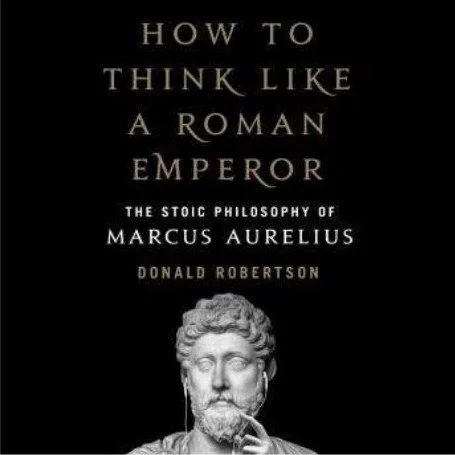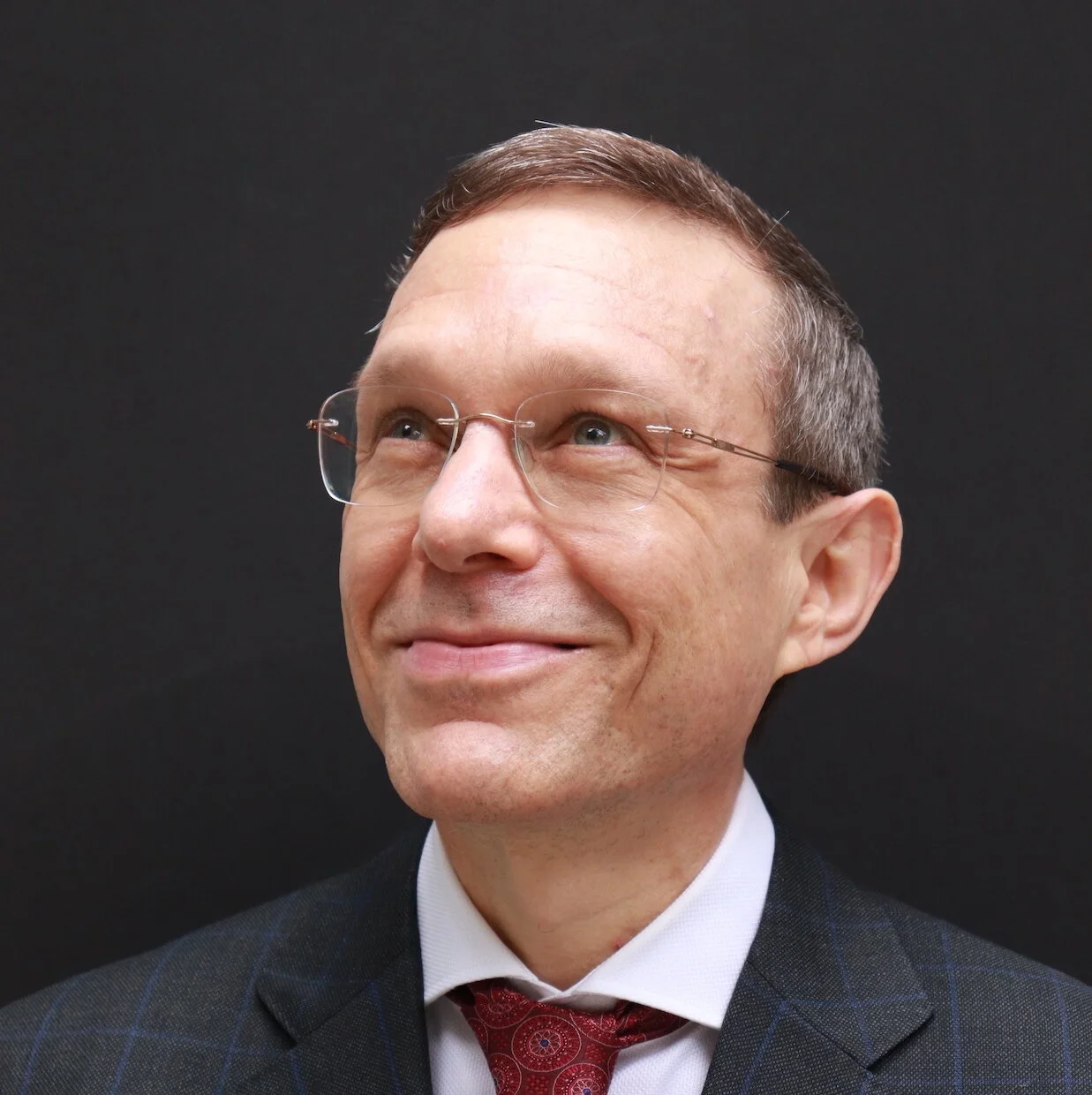THE CREATIVE PROCESS
You are the president and CEO of the National Constitution Center. You're also a writer, educator, a journalist. I think that so many of us, and certainly I, don't know enough about the Constitution. So why for you is the Constitution "the greatest vision of human freedom ever provoked?"
JEFFREY ROSEN
The Constitution expresses the Enlightenment faith. All human beings are born with natural rights that come from God or nature and not from government, and that it's the purpose of government to allow us to exercise our freedom. It's so rich and striking to see how the great thinkers who inspired the Founders of the American Constitution, beginning with the Greek and Roman philosophers Plato and Aristotle and the Stoics, and then continued through The Enlightenment, really were philosophers of happiness. And they believe that we have a right and a duty to pursue happiness, not by feeling good, but by being good. It's a classical notion of happiness rooted in virtue and civic virtue. It's both an individual and a political obligation. The individual obligation to pursue happiness is to master our perturbations of the mind, as Cicero put it, channeling Aristotle–anger, jealousy, and fear so that we can be guided by reason rather than passion and serve others and the public good. And then constitutions are formed to allow us to do that at the political level and to be governed by reason rather than passion, to slow down deliberation so that hasty factions don't crystallize and threaten liberty and equality, and to ensure that the government protects our natural rights rather than threatening them.
It's an extraordinarily galvanizing vision. It's crucially important for personal and political happiness. And that's why it's so exciting to learn about the Constitution.
THE CREATIVE PROCESS
Tell us a little bit about the founding of the National Constitution Center, its history, and mission.
ROSEN
It is exciting and it's wonderful to share the founding of this great institution that I'm so lucky to work at. So, the Constitution Center was founded by the US Congress during the bicentennial of the Constitution in 1987. It was started in 1988. It's a private nonprofit, but it was created by Congress with an inspiring mission, and I love to recite it at the beginning of all of our podcasts and programs because it gears everyone up for the learning ahead. The mission of the Constitution Center is to disseminate information about the US Constitution on a nonpartisan basis in order to increase awareness and understanding of the Constitution among the American people.
Imagine the US Congress today creating a nonpartisan educational institution. It's hard to imagine in a polarized time, but during this brief shining moment, it was created and it carries out this mission on a remarkable series of platforms. It's a beautiful museum of the US Constitution on Independence Mall in Philadelphia, across from Independence Hall, with the greatest view of Independence Hall in America and with statues of the framers and the rarest early drafts of the Constitution and exhibits on the Civil War and Reconstruction, and women's equality and live theatre and interactive displays for kids. It's just this beautiful temple of the Constitution, which I hope anyone who is in Philadelphia can visit because we're now open again during this challenging time.
But our mission is carried out on a much broader platform and that's online. And we have this amazing platform called the Interactive Constitution that I would love your listeners to check out at www.constitutioncenter.org. And on this platform, you can click on any provision of the U.S. Constitution, the First Amendment, or the preamble or the Fourth Amendment or whatever you like, and find the following amazing content. First, we have essays by America's leading liberal and conservative scholars describing what they agree about and what they disagree about. Imagine a thousand words about what the Second Amendment means that both the Left and the Right agree about. It's like a unanimous Supreme Court opinion.
And then you have separate dissenting opinions or concurring opinions for every clause, then you have the ability to explore early drafts of each of the provisions and see that an early draft of the Fourteenth Amendment, for example, which protects equal protection, would have protected African-American voting rights, although that provision fell out. And an early version of the First Amendment, for example, would have applied against the states. Madison proposed an amendment that would have required the states as well as the federal governments to respect freedom of conscience, but that amendment didn't pass. So that ability to explore early drafts is wonderful. Then we have all of the podcasts and public programs and videos that we host about contemporary events. And I have the great fortune of every week calling up a leading liberal and conservative thinker to debate the constitutional issues in the news from: can the president build the border wall? to most recently, we just recorded this week's podcast on: can he, by executive order, raise unemployment benefits? Or a historical podcast about the legacy of Frederick Douglass. It's just a thrill to learn from these great thinkers and to share them through the wonderful podcast form. Our podcast is called We the People and I hope people will check it out. And then finally, and this is the recent innovation that's just so meaningful, we've started offering live classes on the Constitution that are free. And I hope your listeners will check those out, too, as soon as COVID hit, we just went online and some colleagues and I started teaching the Constitution three days a week and we got thirty thousand students in middle, high school, and college students to sign up from March to July. And it was such a hit that we launched again at the end of August, throughout the term. The whole schedule is online at www.constitutioncenter.org three days a week, Monday, Wednesday, and Friday, with guest lectures like Supreme Court Justices.
You also are a teacher through your podcast and you know how meaningful these platforms are. I just find it so meaningful to be able to have conversations about the Constitution with my colleagues, to take those questions of students via zoom, and then to try to inspire people to learn more on their own. So that's what we do. And I am a teacher, as you said, and having the great fortune of being able to work with other teachers and educators at the Constitution Center and using these amazing online platforms to reach learners of all ages is so fulfilling. And that's why I am so lucky to be at the Constitution Center.
THE CREATIVE PROCESS
So you have these great educational programs, and I'm sure you have lots of visiting programs with schools. I guess you could differentiate by different age groups, but young people, when they visit your center, what are they engaging with? And then with the online interactive website, what do you find really excites them? The ones that you find discover they might like to pursue law? How are you getting them in? What really is the turning point?
ROSEN
Well, of course, as you say, people engage in different ways at different ages. For younger students and learners, just seeing those statues of the framers, touching them, and sitting on their laps, and relating to them as human beings is so powerful. As the rap musical Hamilton shows, just seeing Hamilton and connecting to him as a human being is really great. And the live theater is so inspiring that we have a wonderful show called Freedom Rising, where an actor tells the story of American freedom in 20 minutes, and it's really great. But when it comes to online learning and to discussions about the Constitution, generally, of course, you need a question that people can relate to their own lives. So there's no point in talking in the abstract about Fourth Amendment rights against unreasonable searches and seizures. You've got to say something like, Can the school principal search your backpack if you suspect you might be carrying ibuprofen, non-prescription drugs?, which was a Supreme Court case where the Supreme Court, by lopsided margins, said, No, a school principal can't commit a strip search of a young girl in high school because he suspects that she has prescription drugs hidden. That's unreasonable and invasive, and people can relate to it. Or, can the government follow your movements on Google 24/7 by reconstructing your movements, getting your cell phone records, or tracking your browsing habits? People can relate to that, too. So you start with a concrete case, then you can go back and read the text and then learn about the founding stories that inspired the principles of the amendment, like the writs of assistance that sparked the American Revolution and led to the prohibitions on unreasonable searches and seizures, and then relate it to questions the Supreme Court has decided throughout history, and then get back to the present.
And throughout all this, we're having an interactive dialogue, and we often take votes before and after the discussion, and then afterward we see whose mind has been changed based on the discussion and whose mind has been opened to the arguments on the other side. And, even though no matter how many minds are changed, almost everyone's mind is open.
THE CREATIVE PROCESS
I would like to ask, on another level, beyond the law, which I know is hard to think about it, but I do get a sense of anxiety from young people and obviously from established artists and creative thinkers, that people feel people are very much aware of this Doomsday Clock, this reality we're living in. We feel a sense of responsibility. And I feel sometimes like if we wait for laws to be enacted or we wait for amendments, that maybe those changes will not happen in a timely manner. In terms of the things that are important to you or where you focus your interest beyond the law. What are some initiatives you're involved in or that you think are important?
ROSEN
Well, I asked Justice Ginsburg a version of this question. It's an important question, obviously, I asked her what her advice for my then 13-year-old boys was. She said a few important things. First, she always repeats the advice that her mother gave her, which is to master unproductive emotions like jealousy or fear. They're not productive, and they can distract us from useful and productive work. And it's the ancient Stoic wisdom. It's extremely difficult to achieve. She achieved it more dazzlingly than almost anyone I've ever met. Her astonishing focus and self-discipline and refusal to be distracted from her path of pursuing justice and being a great justice was remarkable.
This interview was conducted by Mia Funk with the participation of collaborating universities and students. Associate Interviews Producer on this podcast was Dahlia Haddad. Digital Media Coordinator is Yu Young Lee.. “Winter Time” was composed by Nikolas Anadolis and performed by the Athenian Trio.




















